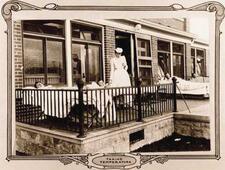Religion
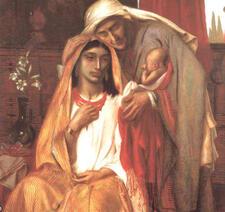
Naomi: Midrash and Aggadah
Midrash portrays Naomi favorably, referring to her as righteous and significant. The Rabbis emphasize her dedication to her faith and her commitment to supporting her gentile daughter-in-law, Ruth. She guides Ruth through her conversion, encourages Ruth to maintain her devotion, and raises the child to whom Ruth gives birth.
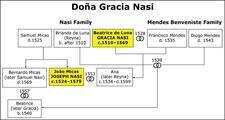
Doña Gracia Nasi
Doña Gracia Nasi was the embodiment of passionate solidarity among exiles. As a young woman she inherited her husband’s fortune, and fled from Lisbon to Venice to Ferrara, where her family lived openly as Jews for the first time. In Constantinople, she assumed a role of leadership in the Sephardi world of the Ottoman Empire.
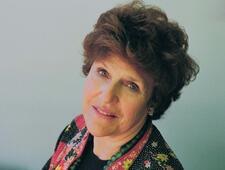
Joan Nathan
Award-winning journalist and cookbook author Joan Nathan is a transformative figure in documenting and exploring the evolving Jewish experience both in America and around the globe through the powerful lens of food. A long-standing contributing writer to The New York Times and Tablet Magazine, Nathan is the author of eleven books, as well as hundreds of articles, podcasts, interviews, and public presentations about Jewish, global, and American foodways.
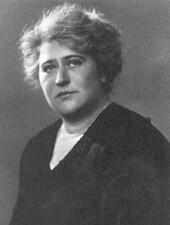
National Council of Jewish Women
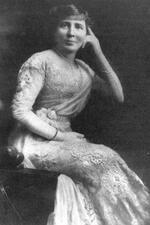
National Federation of Temple Sisterhoods
Founded in 1913 as the National Federation of Temple Sisterhoods and officially renamed Women of Reform Judaism (WRJ) in 1993, the WRJ has for more than a century galvanized hundreds of thousands of Jewish women to support and advance Reform Judaism, the Jewish people, and Jewish values in their home communities, around the country, and around the world.
Nature of Women
Necromancer of Endor: Midrash and Aggadah
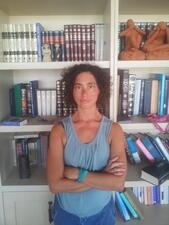
Haviva Ner-David
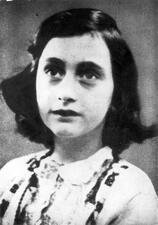
Modern Netherlands
Like Jewish women everywhere, Dutch Jewish women struggled with issues of assimilation, emancipation, and equality as both Jews and women. This article summarizes the conditions and challenges facing Jewish women in the Netherlands and the paths to progress and change they sought—education, work, activism, and literature, among others—from the nineteenth century to the present, including after the particular decimation of Dutch Jewry during the Holocaust.
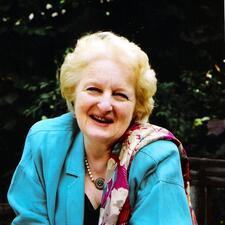
Julia Neuberger
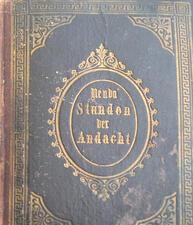
Fanny Neuda
Niddah, Tractate
The tractate Niddah is concerned with the halakhic status of a woman’s body. It details and clarifies all of the rules of Niddah, which describes a woman in her menstruation period.
Observance of Mitzvot: Custom and Halakhah
Women’s existence in a space between custom and halakhah has allowed them to create unique practices and observances. Women are exempt from some halakhah but also have created informal agreements to adapt certain customs to their needs.
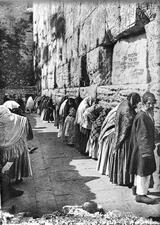
Old Yishuv: Palestine at the End of the Ottoman Period
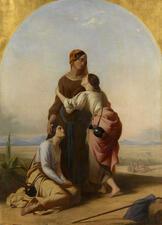
Orpah: Midrash and Aggadah
The Rabbinic expansion of the story of Oprah paints her in a generally unfavorable light. This dislike is based on Orpah’s comparison to Ruth, in which Orpah is portrayed as the negative version of her sister-in-law. Orpah’s naming reflects the description that she is promiscuous and brazen.
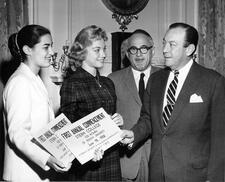
Orthodox Judaism in the United States
Orthodox views on the roles women may play in their communities’ religious, educational, and social life have reflected the range of attitudes that religious group has harbored toward American society. Generally, those Orthodox Jews who have resisted American culture have not countenanced the active participation of women within the synagogue. For other Orthodox Jews, the opening of synagogue life to greater women’s participation, within what they see as the expansive boundaries of halakhah, is but another dimension of their accommodating approach to their encounter with America.
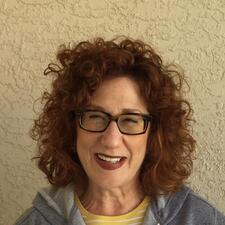
Barbara Ostfeld
Barbara Ostfeld became the first ordained female cantor at age 22, serving a number of temples in her tenure. Ostfeld was passionate about music from a young age and finds joy in her work through poetry and musical theory alike. She is also a writer; her essays on feminism and cantorial work have been printed in several publications.
Rabbi Ben-Zion Meir Hai Ouziel
Rabbi Ben-Zion Hai Ouziel was the Sephardic chief rabbi of Israel. Ouziel believed women could vote and be elected, serve as judges, use birth control for health reasons, and inherit property. He proposed a marriage formula that would prevent women from becoming agunot (“chained”).
Partnership Minyan
The Partnership Minyan is an Orthodox feminist prayer service that seeks to maximize women’s involvement in prayers while adhering to Jewish law, or halakha, by placing the bima (podium) in the middle and allowing women to lead select sections, although women do not count as part of the quorum of ten men. There are currently over 80 Partnership Minyanim around the world.
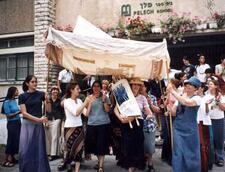
Pelech Religious Experimental High School for Girls, Jerusalem
Pelech is a pioneering school for girls in Jerusalem. For over half a century, Pelech has sought to educate its students towards a love and understanding of Torah. It encourage its students to take part in leadership roles in the religious world and in Israeli society and promotes women’s involvement in improving social justice.
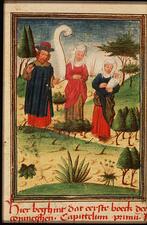
Peninnah: Bible
The second wife to Elkanah in the Hannah narrative, Peninnah is unloved—hence hated—but fertile. She represents a woman who accepts social paradigms without examining them, thus acting out the type of jealousy between co-wives known from the matriarchal texts of Genesis.

Peninnah: Midrash and Aggadah
The narrative of Peninnah centers around her interactions with Hannah, as both women were married to Elkanah. Different midrashic traditions tell stories of how Peninnah treated Hannah, most portraying Peninnah as the antagonist. Peninnah is shown irritating Hannah, although some midrashim argue that Peninnah’s actions were a result of her feeling like the least favorite wife.
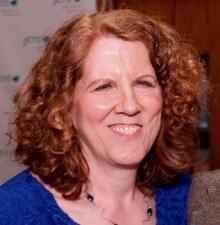
Barbara Penzner
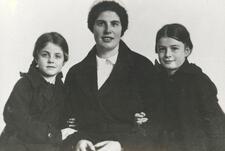
Clara Asscher Pinkhof
Clara Asscher Pinkhof dedicated her life and work to helping and advocating for Jewish children, initially as a teacher and later as an author. She is most known for her accounts of the experiences of Jewish children during the Nazi occupation.
